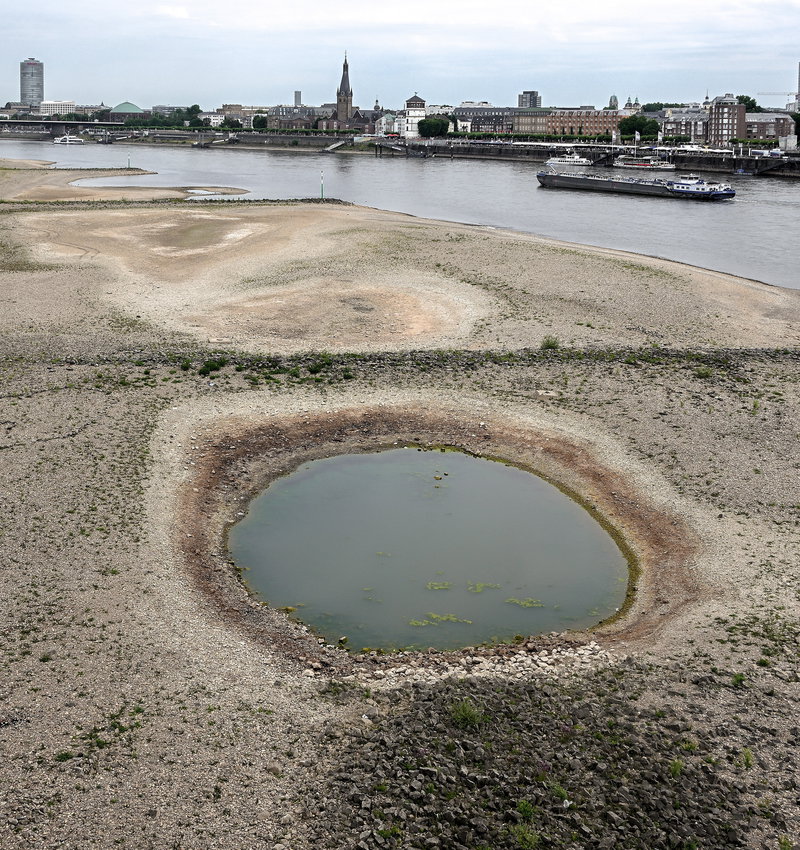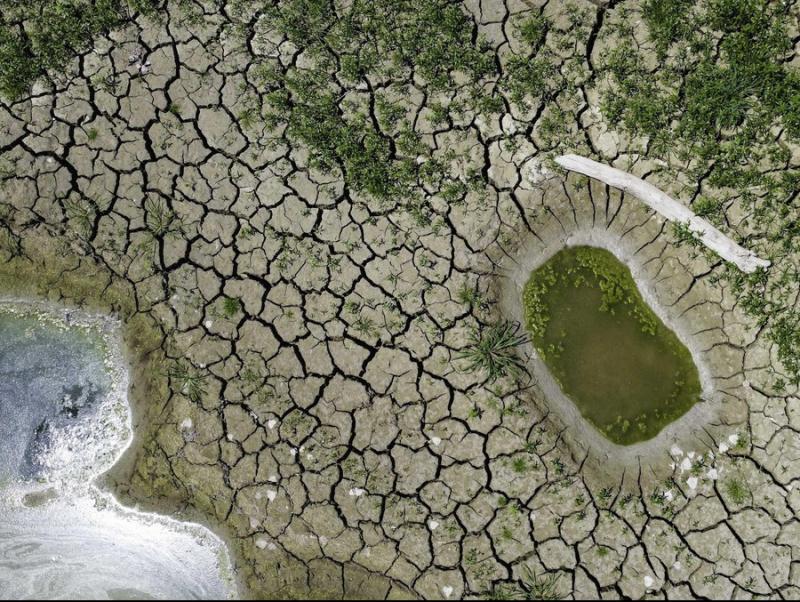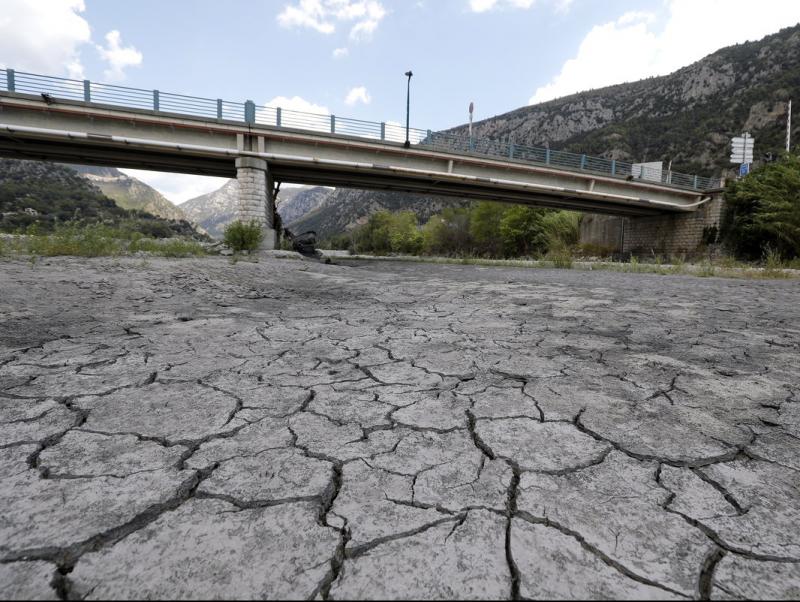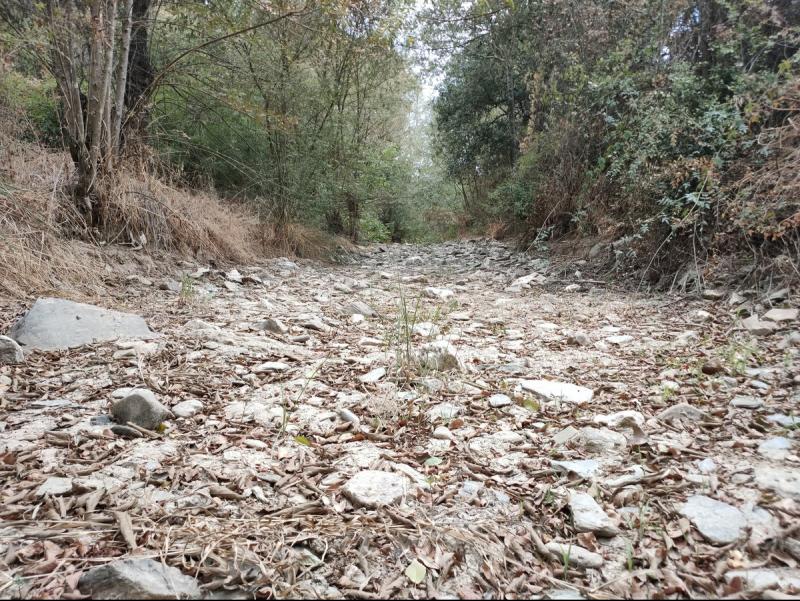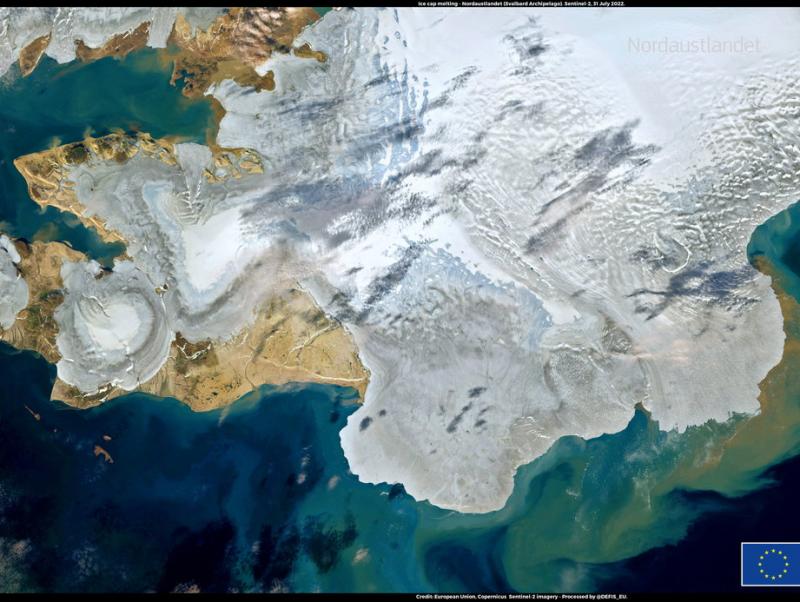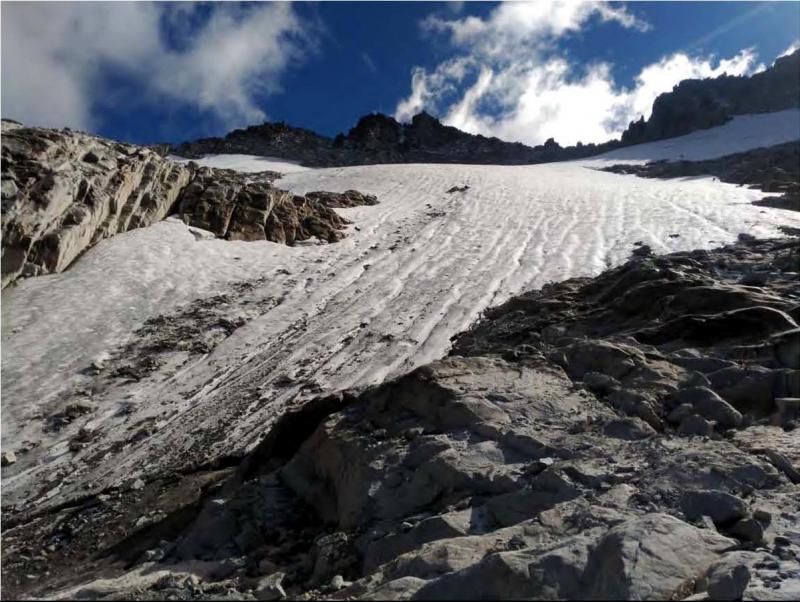Germany also afflicted
If there is one image in Germany that brings together the effects of the two major global crises – climate change and the energy crisis – it is that of the Rhine river. Kaub, one of the most beautiful spots along the river basin, is also the most complicated point for the transit of goods, a key factor for the transport of coal, fuels and raw materials. The successive extreme heat waves that have occurred this summer, when the effects of two previous years of high temperatures – in 2018 and 2020 – still dragged on, have left the river level at 40 centimeters as it passes through Kaub. Below 35 centimeters it is no longer navigable. As a result, goods transportation has been reduced to 25% capacity and the volume of loads has had to be limited, causing losses to skyrocket in the sector.
River transport is also essential for the country as a whole. Olaf Scholz’s government wants to have gas deposits at 95% by November 1 to ensure reserves for the winter. This means that gas supplies from Russia – reduced to 20% of capacity since the invasion of Ukraine – are reserved for the winter and that coal has become the substitute. Large barges would have to pass along the Rhine, as they did before virtually all coal mining was terminated a few decades ago. But the waters of the Rhine cannot transport them. The Ministry of Transport is seeking to “divert” these goods by road or rail. For now, the source of wealth that the Rhine once represented is at a minimum.
It is not the only effect of drought on the country’s rivers, however. The Elbe, to the east, has not been navigable for weeks. Even worse is the situation of the forests, in a country with 11.4 million hectares of trees – 32% of its total area. In the eighties, there was national alarm over the so-called “death of the forests”, due to high polluting emissions and uncontrolled industrial development. This was stopped around 2002. Now, under the effects of climate change, there is talk of a “second death” of the forests. Environmental organisations warn that 80% of the country’s trees are sick, whether due to the effects of pollution, the continued drought experienced by the soil, or the progressive deforestation attributed, again, to human influence.

